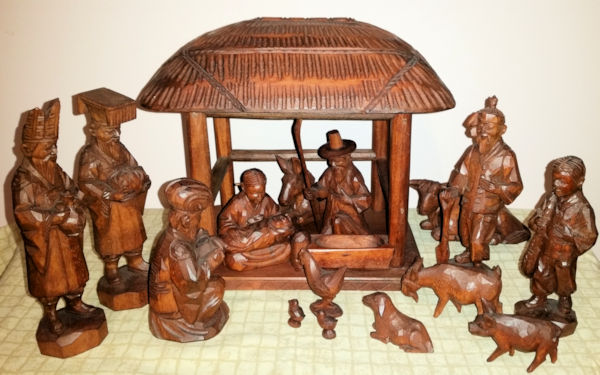Barb Smith Jang grew up in Midland and Ludington, Michigan. She reports from her current South Korea home.
REV. BARB SMITH JANG
Taejon Christian International School, South Korea
 As an Albion College student volunteer for the Crisis Center Hotline, I remember being surprised during a feedback session when another volunteer pointed out that what I wanted most was recognition. I felt a little defensive at the time, but I think he actually nailed it. It’s part of our human nature to want to be recognized and respected.
As an Albion College student volunteer for the Crisis Center Hotline, I remember being surprised during a feedback session when another volunteer pointed out that what I wanted most was recognition. I felt a little defensive at the time, but I think he actually nailed it. It’s part of our human nature to want to be recognized and respected.
North Korea is no different. It seems to me that the drive by North Korea to become a nuclear power is all about wanting to be recognized.
The most homogeneous country in the world — in terms of language, culture, race, etc. — is North Korea. The second is South Korea. With a history of 4,000 years, North and South Koreans consider themselves to be one people despite the last 60 years of separation.
South Korea has earned the world’s respect through decades of hard work and sacrifice. The Confucian roots of Korean culture encouraged a focus on education, equal opportunity, and strong family ties. Corruption and exploitation notwithstanding, South Korea has gradually developed an advanced democratic system and has become one of the most highly educated, WiFi’d, and popular travel destination in Asia. South Korea has earned the respect of the world and is glowing in the limelight of K-Pop and Samsung.
North Korea started strong in the 1950s, betting on the side of communism, but lost their support when the Soviet Union collapsed. The current North Korean leaders may be ruthless, but they are not stupid. Most South Koreans do not fear a nuclear attack from North Korea. That would be suicide for the North. North Korea doesn’t really want to attack their kin in South Korea, or the USA or anyone else. They want to be recognized and respected. They believe that having nuclear capability is the only way to ensure their security against the U.S. military bases in South Korea and Japan. It’s like a bully standing up to another bully.
The biggest fear that I sense in South Korea is that some flippant comment might trigger a misunderstanding that escalates into an attack.

So life in South Korea goes on without much real concern over North Korea’s nuclear program. We watch the news. We pay attention. But we worry more about our aging society, air and water pollution, renewable energy sources, and South Korean politics.
South Korea in 1981, when I first arrived after graduating from Albion College and working at Muskegon Central United Methodist Church, was a third world country. During the decade of the 90s that I spent at Garrett-Evangelical Theological Seminary, Grand Ledge and East Lansing, South Korea leaped into the first world. I was astounded at the progress made when I returned to Korea in 2001, and continued to be amazed at what hard work and determination can do for a people and a country. Just look at the upcoming Olympics!
As the middle child of five kids growing up in Midland and Ludington, I just wanted to be noticed and respected. Today, living near the most heavily armed border in the world, I think that North Korea feels the same way.
Why can’t we accept that they are people, too?
~Barb Smith Jang is an Elder in the West Michigan Conference. She served as a missionary of the General Board of Global Ministries in South Korea 1981-1990 and 2001-2003. Churches served in Michigan include: Muskegon Central UMC; East Lansing: University UMC; and Grand Ledge: First UMC. At the present time Barb is the Pastoral Counselor/Parent Liaison at Taejon Christian International School, Daejeon, South Korea.
Last Updated on December 13, 2017

